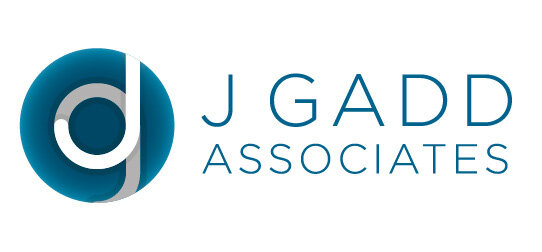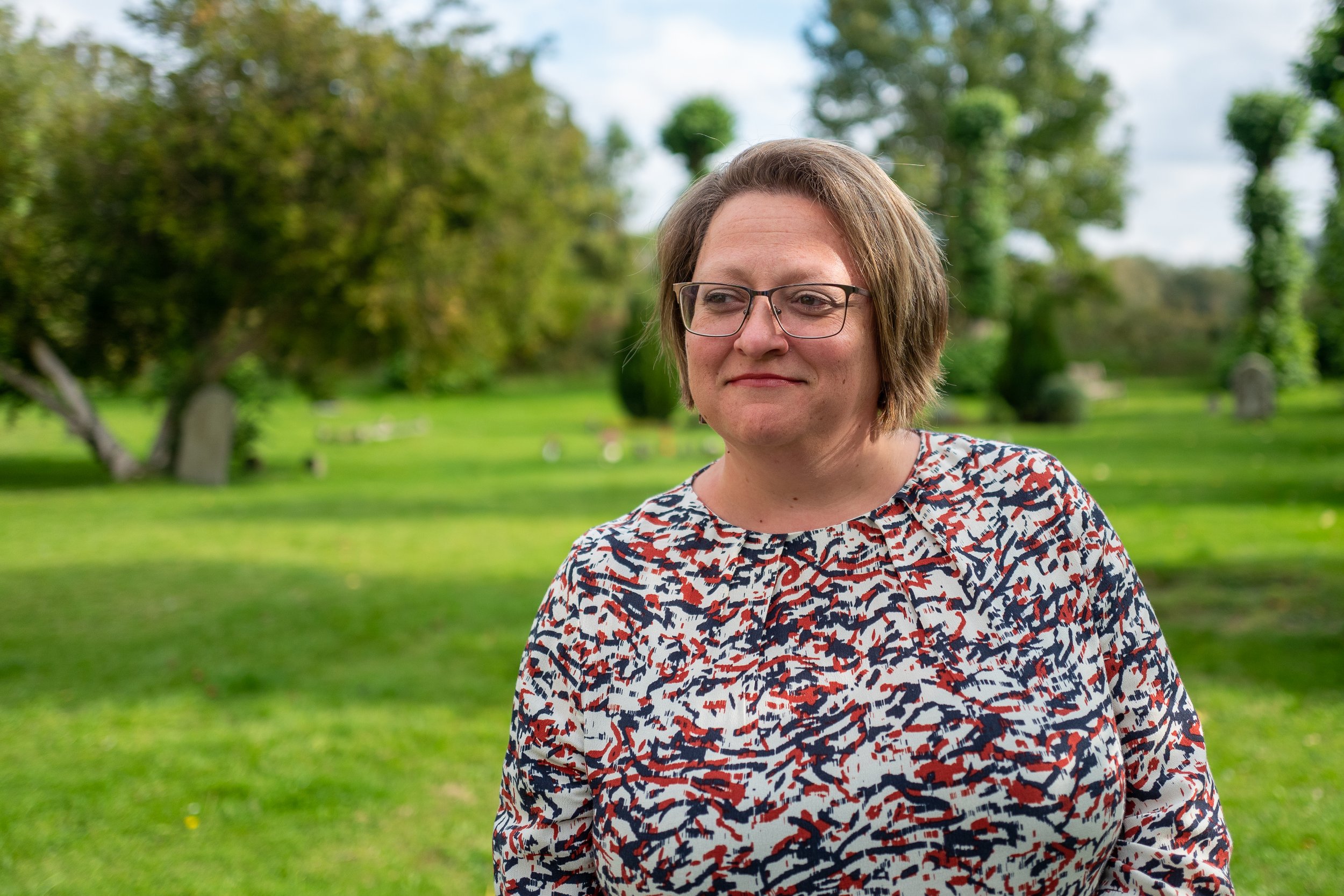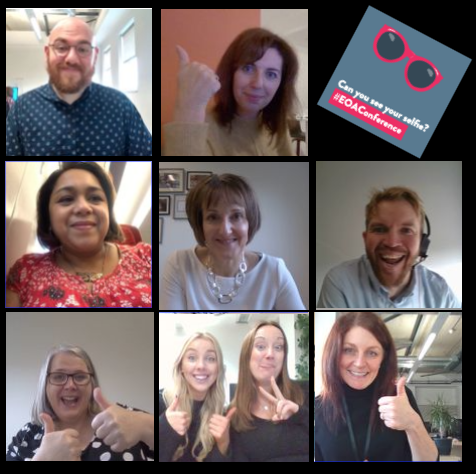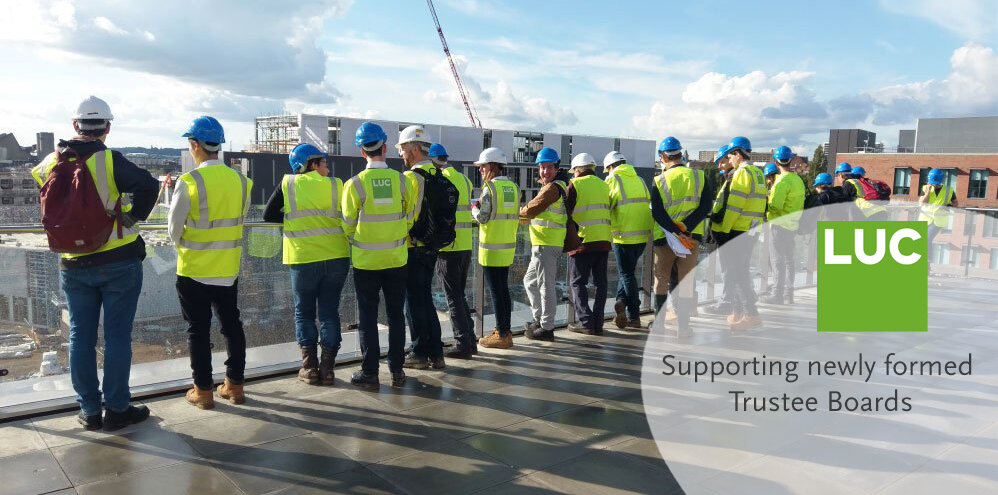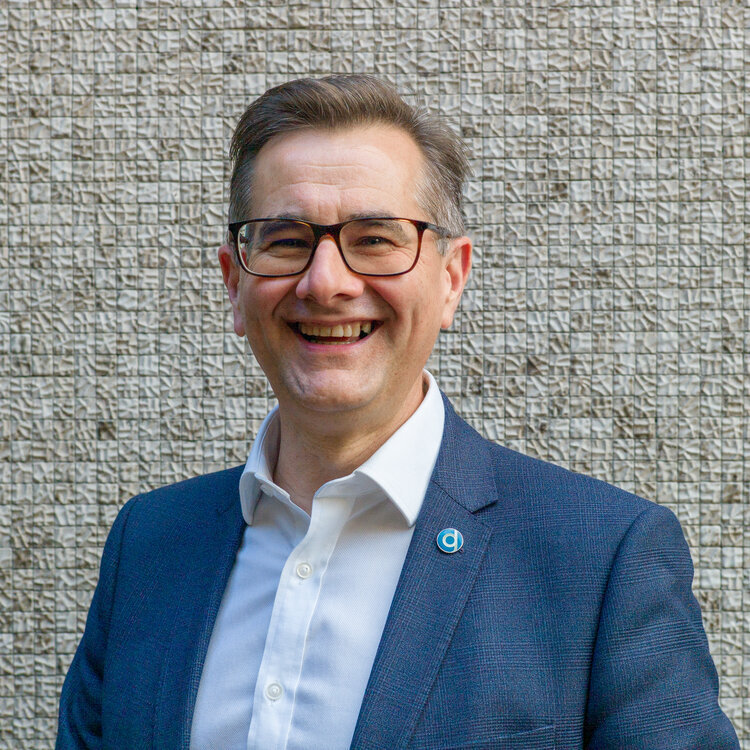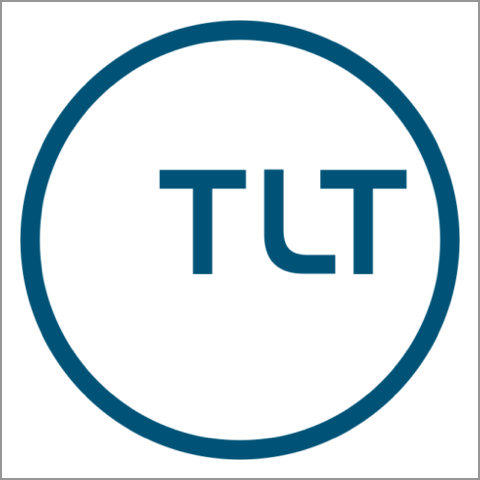How Employee Representation can give your business the edge
It’s no secret: if you’re an owner/founder or senior team transitioning your business to employee ownership, your diary will be pretty full. The legal and financial steps involved in shifting your ownership model will (quite rightly) consume much of your time. So if employee representation isn’t a legal requirement for your future, why should it be on your radar at all?
Good question.
Employee representation is good EO practice, sound governance and can bolster your ESG: that much is clear.
But an effective Employee Representative Group (ERG) and/or Employee Trustees can also drive your commercial performance, with their ability to share knowledge, unlock innovation and ‘temperature check’ your business just three of their core strengths.
The value of influence
They can challenge your thinking. An ERG isn’t a decision-making body but it can exert a profound influence on your decisions, while the value of Employee Trustees lies in their ability to sense check that your board’s decisions are being taken in the best interests of everyone in the business.
Together, ERGs and Employee Trustees can sharpen an organisation’s performance by enabling leaders to engage effectively across all areas – strengthening accountability, relationships and results.
As Associate Libby Unsworth puts it: ‘You’re employee-owned – why wouldn’t you want to listen to your employees’ useful insight and use their good ideas to support your company’s growth?’ Why not indeed.
Putting representation on the radar
So where do you start when there’s no ‘one size fits all’ group or forum or framework for employee representation?
Although some organisations use an ERG to engage their employees right at the start of their journey into transition, for most founders/owners it may not be a top priority at this time.
At JGA, we understand this. That’s why we advise clients that it’s enough, at this busy stage, to include employee representation as an intention – then seek professional support from an experienced business later.
‘A company may think it can go from being owned to being employee-owned without any impact, and initially it might feel as if nothing has changed,’ Libby reveals. ‘But over time there will be a difference as owners focus on what transition means for them personally, their people and their business as a whole.’
This is the point at which JGA’s support can be particularly useful, as we enable clients to understand how EO feels in reality and to unlock the benefits employee representation can bring.
‘Seeing the energy, enthusiasm and pride as individual employee owners grow over time – in their new roles, alongside their business – is one of the things I enjoy most,’ says Libby.
‘A company may think it can go from being owned to being employee-owned without any impact… But over time there will be a difference as owners focus on what transition means for them personally, their people and their business as a whole’
Libby Unsworth, Associate
What should you do next?
Establishing effective representation requires time, vision and energy. Every business will do it in their own unique way.
Here, Libby shares the five practical steps leaders can take to get the ball rolling and build momentum on the road to success:
Be clear about your ERG’s role and responsibilities – what they are and what they’re not. Work with it, trust it and value the connection it provides with your employee owners.
Encourage your ERG to influence leadership decisions. It isn’t a decision-making body but ensure you listen to what it brings and, if you don’t agree, explain why.
Prioritise honest and transparent communication with your ERG. Share what can safely be shared about business decisions and finances (the good and the bad) in an accessible format to foster engagement.
Be ready for (appropriate and professional) challenge from your ERG. In elections, your Board may not get the ERG it ‘wants’ – this may feel uncomfortable but will ensure things are lively and make you think twice.
Be open to being held to account for your decisions by your ERG. Employee representation is about working together, challenging, influencing and asking questions. If you do this, you will be confident that your decisions are well thought-through, transparent and fair.
Want to know more about how JGA can support you to develop effective employee representation?
To find out more about employee representation, read our guest blog for Postlethwaite here.
Mental health, work and your business: how the right culture can help
How ‘healthy’ is your workplace? Not just physically, but mentally too. What’s your culture when it comes to your people’s wellbeing: is it inclusive, is it aware?
Sick leave due to poor mental health was the top cause of time off work in 2021, costing UK employers an estimated £43bn and making this year’s Time to Talk Day (3 February) more important than ever.
Run by Mind and Rethink Mental Illness in partnership with The Co-op, the day aims to create supportive communities by encouraging people to talk with family, friends or workplace colleagues. And to seek professional help, when they need it.
So today, at JGA, that’s what we’re doing – making time to talk, along with thousands of others, as part of the UK’s biggest conversation on mental health.
Reducing the stigma
As individuals, we know how being more open about mental health can be useful. But why is reducing the stigma also important for organisations?
It’s the right thing to do commercially – poor mental health has a direct financial impact on your performance, through lost productivity, higher absence levels and increased staff turnover. Strengthening resilience will drive your success.
It’s the right thing to do culturally – it’s not rocket science: who doesn’t want to feel engaged and fulfilled by their work? A mentally healthy workplace will make this a reality for more of your people and sustain a positive mindset through good times and bad.
It’s the right thing to do for your brand – your employee wellbeing support is now on the radar of an increasing number of socially-conscious customers, investors and potential employees. It’s part of your commitment to ESG .
Whether your teams are on site, remote or hybrid working, your approach to your employees’ wellbeing is now a core part of who, and what, you are.
Creating a mentally healthy workplace
This shift has been accelerated by the practical and, for many, emotional impact of the pandemic on how we live and work – with more of us doing our jobs from home and/or caring for family members.
‘Organisations have long invested in supporting their employees’ physical wellbeing,’ explains JGA Executive Coach Corrine Thomas. ‘Now the importance of good mental health is being recognised in the workplace too.
‘It’s being talked about more openly and is on the agenda in team meetings. Many companies are investing in training to support their employees to stay mentally well.’
Sustaining an inclusive culture
So the message is clear: supporting your employees as ‘people’ makes good business sense.
But what does this mean if you’re employee-owned or considering EO transition? Does your model bring you a natural advantage when it comes to workplace mental health? Yes – and no.
There’s no proof that employee-owned businesses ‘do’ workplace mental health better. However, the energy that the best EO organisations invest in creating an inclusive culture, based on honest communication and effective employee engagement, should (in theory) give them a head start.
The same could also be said of other values-led businesses, where many would expect a commitment to ESG to put the quality of their employees’ experience of working with them at the heart of what they do.
‘Mental health exists on a continuum: we all have times when we feel low – and other times when we feel on top of the world’
Corrine Thomas - Executive Coach
Time to talk – and listen
As Corrine explains: ‘Employee-owned and other values-driven organisations consider their people to be their biggest asset. They invest in building a working environment where trust and respect are important, and where every person feels that they belong to a community that matters.
‘When things are tough for an individual the organisation will give them support and be available to listen. When the organisation is facing tough times, the individual remembers the support and is motivated to go the extra mile to make a difference.
‘In many EO organisations, teams will take action together, share their ideas and listen to each other around how they are feeling every day. Checking in on a personal level becomes a normal part of the working day.’
Small steps, positive impact
So on Time to Talk Day, what will Corrine be doing? Encouraging people to take small daily actions that contribute to their mental health. ‘It can be as simple as taking 10 minutes out of a busy day to do something you love, have a chat with a colleague, or pause and notice one thing you’re grateful for,’ she says.
‘Mental health exists on a continuum: we all have times when we feel low – and other times when we feel on top of the world. By taking a few simple daily actions everyone can create a set of tools that will support them when times are tough.’
If you would like to know more about how JGA can support you to create a more inclusive and fulfilling workplace culture through our Transition, People and Governance services, please get in touch here.
EO transition: Practical tips - from a business that's done it
NC2 knew becoming EO would be a journey, but didn’t realise how valuable the learning would be – until the pandemic hit.
Here, Financial Controller and Employee Trustee Abi Knight reflects on their first 18 months (and counting) as an employee-owned business – and shares practical tips for those considering the same.
‘Don’t do it during a pandemic!’ is one of Abi Knight’s practical tips for founder/ owners transitioning their business to employee ownership. And yet, the timing of NC2’s own transition – mid-national lockdown and major shift to remote working – created a unique opportunity to learn for the software company’s team.
NC2’s previous co-owners – Neal Criscuolo and Neil Crawford – had already decided to complete the legal transaction first, then give themselves and the business a year to ‘make EO work’, when they signed the company over in May 2020.
Pre-transaction discussions focused on fostering the right levels of employee owner influence. ‘Studies show that EO is good for a business and good for the economy,’ says Abi. ‘The challenge is understanding how to reach that point without becoming an organisation where you can’t make a decision unless everybody agrees.’
So how do you do that?
Here, Abi reveals what’s worked for NC2 in its first 18-plus months – and how a clear process and structure has created a lasting result. These are her practical tips.
1. Get involved with the EOA
Joining the Employee Ownership Association (EOA) – with the practical advice and networking they have – connects you with other companies in transition or further down the road. I also read books such as The Employee Ownership Manual (Robert Postlethwaite with Jeremy Gadd) and listened to podcasts.
2. Seek expert professional help
Every transition is different but you don’t have to do this alone. For NC2, J Gadd Associates’ guiding support was incredibly useful in shaping our project and focus. They patiently encouraged us to work out our own answers, so we were responsible for and fully managed our own EO transition. So get help, whether that’s from the EOA, J Gadd Associates or an equivalent service provider.
3. Set up your EO transition as a properly resourced and timed project
After the transaction, we gave ourselves a year to work out what EO meant for NC2 and were clear with our team that nothing would change on day one. Then we set up our EOT project. J Gadd Associates helped us create this structured approach – with a clear plan, workstreams and a Steering Committee sub-set of ‘volunteers’ who became the ‘opinion’ of NC2. You don’t have to stick rigidly to it, but the project structure, process and drumbeat of a regular meeting really focuses the mind.
‘Every transition is different, but you don’t have to do this alone. So get help, whether that’s from the EOA, J Gadd Associates or an equivalent service provider’
Abi Knight
‘Studies show that EO is good for a business and good for the economy’
Abi Knight
4. Be clear about when you want influence/opinion and when you’re asking people to make a decision
It won’t all be plain sailing – things were tough for us at times, especially with so much remote working. But understanding the difference between influence and decision-making, and the level of employee owner input you want, is important.
5. Communicate clearly, regularly and be honest
We had no agenda for what our project’s output would be, but we knew we’d get there by working together. We shared monthly updates, were honest about what we didn’t know and assured our employee owners we’d try to find out. As Financial Controller, I was initially concerned that being more open about our financials would mean people would challenge all sorts of decisions, but this didn’t happen. Treat people like adults and they’ll behave like adults.
6. Trust your judgement
We all want to get things right, but occasionally it’s okay to say let’s do it like this for now, and if it doesn’t work we’ll change it. At one point, our senior team were still worried about which decisions should involve employee owner influence, but we have to trust we’ll know when we get there.
So what now?
Abi concludes that one positive (and lasting) impact of the way NC2 has transitioned is the useful structure it’s brought.
‘Becoming EO has forced us to grow up as an organisation,’ she says. ‘Previously, we were very ‘laid back’, but we’ve learned that people do like some structure, do like some boundaries and do like some process. All those things will serve us very well for the future.’
If you would like to know more about how JGA can support you with your Transition, People and Governance services, please get in touch here
ESG – why it should be on your radar in 2022
ESG. Whatever your sector, model or size, understanding what it is and what it could mean for your business is important as ESG moves ‘mainstream’ in 2022.
So what is it? ESG stands for Environmental, Social and Governance and refers to a set of standards for a company’s operations that socially-conscious consumers, investors and potential employees can use to screen decisions.
Often applied in sustainable or ethical investing, ESG has started to replace CSR as the go-to term for socially responsible business practices.
But there’s more to it than this, because ESG isn’t just relevant for those working in the ‘green economy’. As its profile grows, ESG is becoming a core feature of doing business, not an optional extra. It is CSR rebooted and should be on the radar of every values-driven company today.
Growing awareness – and the need to act
‘The idea that companies need to act as corporate citizens isn’t new,’ says Associate Lisa Fryer, ‘but the pressure to be aware, take steps and be transparent and honest about how your business is doing – including where you’re limited – has grown.
‘ESG is more than an add-on to your company report. The best values-driven companies are integrating it with their operations. They understand that ‘greenwash’ won’t wash in a social media age.’
Indeed, while the power of social media can be divisive, it has also raised public, political and business awareness of genuine prejudice and discrimination. By highlighting bias, it’s shone a light on differences in the treatment and experiences of others that are reshaping many workplaces, as well as the lives we lead.
Different approaches for different sectors
At J Gadd Associates, we’ve noticed a growing awareness of ESG among many of our existing and former clients, and are excited at the way in which some – such as Riverford Organic Farmers – are leading the way. Environmental consultancy LUC is another example of a client that has taken a strong public environmental stance.
‘Many organisations have been conscious of ESG for some time, but there’s a sharper focus on it now – its profile has risen,’ Lisa confirms.
‘Those with an environmentally-driven customer base are already ahead: ESG matches their values and they are openly sharing information with those who work and shop with them. It’s key to maintaining trust.’
For others, it’s about clarifying their intentions, setting practical goals and being realistic about where – and how – they can strengthen their approach to Environmental, Social and Governance in a way that supports their reputation and commercial success.
Each company’s stance will be different depending on their sector, product and services. Some face a bigger challenge. There is no one size fits all.
‘As its profile grows, ESG is becoming a core feature of doing business, not an optional extra’
Setting realistic ESG goals
So what about us?
At J Gadd Associates, the way we work with employee-owned and other values-driven businesses is shaped by our values – Trust, Integrity and Clarity. We are clear in all that we do.
That means that this year, like many other companies, we will be clarifying and applying our own ESG standards to align with our values, so we can be transparent when sharing information with our clients, trusted partners and wider networks about our progress towards realistic goals.
But we’re not starting from scratch.
The nature of JGA’s Transition, People and Governance services – and the way in which our Associates design and deliver them – means that much of what we do is already connected to strengthening our clients’ ESG.
Moving forward in the right direction
How so? As a business working with the employee ownership sector, our support is geared around the ‘S (Social) element. We enable employee-owned organisations to unlock the potential of their people and bring their employee ownership to life.
Alongside this, our experience in supporting clients to establish sound governance with fit-for-purpose structures and processes – and the right people in the right roles – doesn’t just ensure they are legally compliant. It also strengthens their commercial resilience and ability to grow.
As Lisa points out: ‘If your organisation embeds good governance, you, your people and customers will know that the E and S of ESG are being taken seriously and that any decisions are being taken appropriately. At JGA, we see this in action through our work on developing trust board effectiveness and building a stronger board.’
‘When you have a clear vision, strong values and the right people in the right roles, good governance keeps everything moving forward in the right direction.’
‘An important part of JGA’s employee ownership work relates to enabling our clients to define their purpose. Achieving ESG goals is a lot easier when an organisation understands what it values and why.’
Meeting your customers’ expectations
Lisa is excited to see how many companies are now ‘stepping up’ when it comes to ESG. ‘As a business, they feel it’s the right and responsible thing to do,’ she explains.
‘And it’s what their employees are asking them to do. The pandemic has prompted many people to reassess what matters, raising employees’ expectations. The shift to hybrid working hasn’t limited access to talent, so talent can be more demanding about where they want to build their career – and how.’
‘At JGA, we’re working with a generation of leaders whose approach is being influenced by their children. The younger generation is challenging them to be more conscious of factors such as the environment.’
The Employee Ownership Association has recognised this shift too. Last year it ran a webinar series on ESG, which Lisa followed.
‘One of the many points the EOA webinars made was that all eyes need to be on the ball. Even if you’re an organisation supplying services or products to other organisations, those clients have reputations and customers at the end of the chain who are expecting them to take the right decisions,’ she says.
‘This focus is consumer-driven. In the past, having a stance on ESG was a nice to have – now it’s a must-have. If you haven’t started yet, you’re behind the curve. The business perspective has changed.’
‘Each company’s stance on ESG will be different depending on their sector, product and services. There is no one size fits all’
Next steps
At JGA, our Transition, People and Governance services can help clients gain clarity and take practical steps towards achieving their ESG goals.
To find out more about how we could support you
EO needs new role models for a new age. Could it be you?
EO’s never been short of role models: think of the pioneers. Spedan Lewis’s ‘experiment’ that became a £10bn business. Ove Arup with his belief in ‘socially useful work’. Max Fordham with his ‘fit to be an employee, fit to be a partner’ stance.
All innovative thinkers who challenged the business norm. All founders of businesses – John Lewis Partnership, Arup, Max Fordham – still championing EO today.
But how people live and work has changed, and EO is changing with it. So what makes an EO role model now?
What qualities ensure EO remains a relevant way to do business when so much else around us has changed?
An innovative and growing sector
This much is clear: employee ownership today is a diverse and dynamic sector with innovative people, at all levels, championing the cause.
And EO is growing.
As the Employee Ownership Association confirms, 250-plus companies have transitioned since the start of 2020. That figure includes Go Ape which attracted national coverage by becoming EO in October as part of its founders’ succession planning.
This diverse mix is reflected in J Gadd Associates’ experience too. Our clients span multiple sectors, sizes and ownership models – from Riverford Organic Farmers and Aardman Animations to Kilnbridge, NC Squared and Community Dental Services.
‘What the best EO organisations share is vision, passion, commitment and determination,’ says JGA’s Managing Director Jeremy Gadd, ‘and an understanding of what the ownership in ‘employee ownership’ is all about.
‘The founder’s values and beliefs remain firmly at the heart of the business, long after the individual has stepped down and gone.’
The power of shared responsibility
So ‘ownership’ – where do you start? ‘Max Fordham’s focus on EO being about shared responsibility, rather than shared profit, is the key,’ says Jeremy. ‘For me, it’s very powerful.’
JGA’s experience has also shown that successful employee ownership isn’t just about great employee engagement. ‘It’s about helping people understand the responsibility, opportunity and reward that employee ownership can bring – and how to unlock the benefits of their model,’ Jeremy explains.
Defining what ownership means is a conversation JGA’s Associates have with both pre- and post-transition clients, as they explore which practical steps to take.
‘What the best EO organisations share…. is an understanding of what the ownership in ‘employee ownership’ is all about’
Jeremy Gadd.
So what makes an EO role model?
This is a good time to be EO, despite the challenges of the pandemic. There are countless inspiring EO organisations, teams and individuals out there – some regularly garnering awards and media mentions. Guy Singh-Watson of Riverford Organic Farmers and Julian Richer of Richer Sounds are well-known names for a reason.
But what about EO’s smaller ‘movers and shakers’? What qualities make them different and better?
And what if the next EO role model could be you?
Jeremy is intrigued to see who will emerge and what will set them apart, as EO itself continues to evolve.
Drawing on JGA’s own experience, he predicts: ‘The leaders of EO tomorrow will succeed by understanding, and inspiring, an organisational performance that’s delivered by empowered and inspirational employee owners.
‘They will ensure the competing challenges of diversity and inclusion, ESG, client demand, new technology and existential threats are met and viewed as holistic, rewarding opportunities.
‘The challenge for those of us involved in growing this dynamic sector will be identifying and learning from you. It’s an exciting time to be supporting EO.’
Want to know how we can enable you to unlock the benefits of employee ownership with our Transition, People and Governance support?
JGA @ EOA Conference
Inspiring, dynamic, fun – our Associates’ verdict on EOA Conference 2021
Three days, 30+ interactive sessions and a raft of opportunities for some great networking, insight sharing, learning and, of course, fun (photo booth, anyone?) – the 2021 Employee Ownership Association Conference was the big event in JGA’s winter calendar, and we were delighted to be headline sponsors with Postlethwaite for the third year in a row.
Our Associates played an active role across multiple live sessions and networking ‘tables’, as well as facilitating others’ discussions on EO’s hottest topics right now.
But one thing stood out – the chance to connect (and reconnect) with those who make EO such a vibrant sector felt particularly precious in such a tough year.
Find out what happened in our EOA Conference roundup. We also asked our Associates to share their feedback – here’s what they said.
JGA team having fun in the ‘photobooth’
Quality conversations, quality learning
For MD Jeremy Gadd, seeing J Gadd Associates step up as the conference’s headline sponsor once again was a real highlight. So, too, was the quality of the conversations he heard.
As he explains: ‘What makes these events so useful is the way in which people are prepared to not only share what has worked well, but also to open up about the challenges they’ve faced. It’s been said before, but you never stop learning.’
Associate Lisa Fryer agrees. ‘The virtual networking space between sessions, with general and topic-led discussions, was great. It really enabled us as individuals to connect and explore working together in more detail – as well as have some fun.’
A step change in content – and experience
Replicating the in-person conference experience online is new territory for most organisations, and Lisa praises the EOA team and First Event for further developing their offer this year.
‘Since ‘dipping the toe’ in virtual at EO Boost, and experimenting through their networking and webinar series, this fully virtual event was a step change in content and experience – and well worth the registration fee,’ she says.
‘The next challenge is how do they top this? If 2022’s EOA Conference is a hybrid event, the mix of prepared content, panel discussions and keynotes alongside networking and in-person sessions could be mind-blowing!’
No pressure then, EOA.
‘The EOA team did a great job keeping us on track’
Philippa Meaden
Great to see so many of the EOA team too
Leading by example
Associate Philippa Meaden also noted how the conference’s online connectivity has evolved. ‘It was a step up regarding how we were all able to interact this year,’ she says. ‘The EOA team did a great job organising and keeping us on track.’
Pip’s contribution to an incisive panel discussion on Effective Leadership Behaviours generated a busy online Q&A. Comments described her ‘authenticity’ in sharing her own experience of leading in a co-owned business as, in itself, ‘true leadership behaviour’.
‘It’s been said before, but you never stop learning’
Jeremy Gadd
Shared insight, shared values
What about the conference’s other contributors? These spanned diverse sectors, sizes and employee ownership models, as well as trusted partner consultancies offering transition, people and governance support.
‘Articulate’, ‘informed’, ‘switched on’ – ‘they’ve all got so much energy and positivity!’ were just some of the ways our Associates chose to describe the delegates and discussions they heard.
The opening day’s interview with Go Ape founders Tristram and Rebecca Mayhew felt especially relevant, as they shared their experience of putting values at the heart of decision-making.
Behind the scenes!!
‘The virtual networking space enabled us to connect and explore working together in more detail – as well as have some fun’
Lisa Fryer
Next steps
Were you there? All registered delegates have access to the Employee Ownership Association Conference 2021’s sessions, recordings and resources for 60 days. Catch up on what you missed here.
Want to know more about how JGA can support your organisation with our Transition, People and Governance services?
Get in touch here.
EOA Annual Conference 2021
JGA and Postlethwaite Headline Sponsors
Save the date, the EOA Annual Conference 2021 is announced.
Clear your diaries, the 16th to 18th November is the EOA conference and we’re proud to be headline sponsors again with Postlethwaites.
Details have gone out today to EOA membership with the top topics being covered during the event highlighted as:
Exploring Succession
Developing Good Employee Ownership
Better Business
Tickets for the conference go on sale in a couple of weeks time, so keep the dates clear and make sure you sign up for the early bird discount.
JGA guest blog for the Employee Ownership Association
At JGA we don’t just talk about governance
One of the many ways you can strengthen your governance is by appointing an Independent Trustee.
We were recently invited to share our thoughts on governance for the Employee Ownership Association guest blog. So we decided to outline the 5 ways we believe governance and Employee Ownership go hand in hand.
In preparing our thoughts we called upon the various elements of expertise we have within our team.
Jeremy and Philippa are both Independent Trustees for EO businesses, holding 2 appointments each. Garry and Lisa hold roles within school governance, as governors and Academy Trust Members. Lisa also works as a Governance Professional and supports training for new school clerks. Adrian is a Chartered Corporate Governor, supporting both new and established boards in understanding their responsibilities.
So governance isn’t just something we talk about, it’s something we’re involved in delivering across various organisations and we are passionate about the difference it can bring.
If you’re interested in our thoughts, you can read the blog here.
Employee Trustees - How they make a difference
One year after becoming 100% employee owned, the employee trustees at LUC have been reflecting on their experiences so far.
Late January 2020, the newly formed Trustee Board for LUC met with JGA for a bespoke workshop focused on enabling them to establish effective relationships and meetings from the outset. Little did anyone realise just how valuable that day would be, when soon afterwards Coronavirus locked down the UK.
Fast forward through lockdowns, working from home and roadmaps, the employee trustees have been sharing what their year has been like, what being an employee trustee at LUC means, and a little about the sorts of things they’ve been involved with.
Follow the links to find out for yourself what the trustees have been sharing.
Listen in to this discussion
Employee Ownership Accelerator
JGA working together to share employee ownership expertise
We are very proud to share the news that we are working in partnership with Stir to Action, TLT and Triodos UK, and supported by the Employee Ownership Association, to bring the first Employee Ownership Accelerator course to life.
On announcing the course, which has already opened for registration of interest, Jeremy said:
“With many years’ experience of bringing employee ownership to life in organisations, we know that the journey starts with enabling business owners to explore and understand how employee ownership can fulfil the vision they have for their business. We look forward to working with this new initiative to inform, inspire and enable owners to take those next steps.”
The accelerator, to be hosted at Stir to Action’s New Economy Centre at Selgars Mill in Mid-Devon on 17-19 September 2021, will support a cohort of business owners to explore employee ownership models and look at how to determine what will work for them, and also consider the legal, financial and tax implications.
JGA will be facilitating the course, with Ben Watson from TLT and Simon Crichton from Triodos Bank providing legal and financial expertise.
Deb Oxley, Chief Executive of the EOA said:
“As the employee ownership sector grows, so does the knowledge and best practice about what makes a good employee owned business. It is great to see the launch of new initiatives that support this as well as the aims of the EOA – to unlock the potential of people, businesses and the economy through employee ownership.”
Kilnbridge Construction Services becomes 100% employee owned
We are delighted to share the news that Kilnbridge Construction Services has become employee owned.
The construction company, which employs 800 people, is based in east London, with offices in Birmingham and Belfast, as well as a manufacturing facility in Northampton. Kilnbridge works across sectors including rail, aviation, nuclear, residential and commercial property and is proud to have secured multiple awards.
Kilnbridge now ranks as one of the largest employee owned construction contractors in the country.
Dermot McDermott, who founded the business in 1992 and grew it as a privately-owned company for 30 years, has sold all his shares. These are now held, collectively, on behalf of all Kilnbridge employees, through an employee ownership trust (EOT).
Dermot said he was immensely excited about the benefits that employee-ownership would unlock in the long-term both for the Kilnbridge team and for its clients and about the role it would play in ensuring the resilience and sustainability of the company for future generations.
“As an employee-owned business, Kilnbridge will continue to thrive and deliver for our clients in line with our deeply-held values of responsibility, integrity, collaboration and excellence”
Philippa Meaden, Lead Associate has supported the preparations for the transition to employee ownership.
“I am delighted, on behalf of JGA to be leading the cultural transition for Kilnbridge construction services from previously a family owned organisation to one that is employee owned. Working alongside the other professional advisors has been a pleasure.
With such a rich legacy and core values, employee ownership and Kilnbridge are a great fit. I am looking forward to continuing to work with the team to support them further in understanding how to lever the advantages that being employee owned can often afford businesses.”
EOTAS - what's it all about?
Jeremy in conversation with Cathy Kay
Jeremy is an independent Trustee for Aardman Animation and The Rooflight Company
With the launch of our new service, a joint venture with Russam, and supported by the Employee Ownership Association, Jeremy caught up with Cathy Kay, Managing Partner - Commercial, Russam.
“As a Trustee Director myself, I know just how important it is to attract the right independent trustees to ensure the Trust Board carries out its responsibilities effectively, modelling the way in corporate governance standards.
We work with founders, owners and existing boards to support their Trustee recruitment needs. Attracting the right Trustee is an essential ingredient in ensuring the executive or leadership teams receive the right combination of critical support and independent oversight.
Our partnership with Russam has been founded on a shared desire to match the best people, ensuring the right fit for every boards’ needs.”
Employee Ownership Trustee Appointment Service
Why Independent Trustees are such valuable assets
Over half the transitions to employee ownership trusts have occurred since 2017, with the White Rose annual survey reporting on EO Day last June, that 100 new businesses had converted in the previous 12 months. There are an increasing number of founders and owners choosing the employee ownership model for their businesses. These choices often secure long term sustainable employment, rooted within communities and committed to demonstrating positive values.
There is a common requirement for an employee ownership trust to appoint a mixture of trustees, enabling strategic oversight on behalf of the beneficiaries, with at least one of these being independently appointed. Sometimes these needs can be fulfilled from within your current network, but that may not bring the diversity and perspective your trust board needs. With more transitions to EO and more boards maturing, actively succession planning and challenging their effectiveness, we believe the need for high quality independent trustees will continue to grow.
We recognise the value and importance of effective governance, and the assurances it can bring to organisations. We believe that with independence comes greater integrity, an asset to any organisation, ensuring that business values and purpose are effectively nurtured. We know how independent trustees can spark new conversations, generate discussion and transfer their knowledge to new boards and environments. In addition to their specific areas of expertise, we also believe that effective independent trustees bring the benefits of fresh perspectives, cultural challenge and occasionally a healthy scepticism.
Our joint venture with Russam is focused on supporting employee owned organisations to find the best match for their Trustee Board. Since opening for registrations at the start of this year, over 300 candidates have joined, seeking to share their expertise, spread best practice and promote good governance.
Whether you are a current trustee, have been a trustee previously or are looking to become one, why not take a look at the role and register to ensure you’re in the mix for future opportunities.
We’re very excited to be launching this service, and can’t wait to support employee owned organisations in finding the right trustee for them. Kathie, our lead associate for this service is available to send you further details and discuss your needs in more detail, so feel free to drop us a line if you’re interested.
Angela @ EO Boost
Working in the background at JGA doesn’t mean Angela is not keeping up with what is going on at EO Boost
We asked Angela, Finance Director at JGA for her thoughts on day one of EO Boost
Why is the EOA annual event important to JGA?
Well it’s the one event in the year that enables a large number of businesses direct contact with JGA, to ask questions, explore what we offer and work out whether we’re the right support for them. On another level, it’s great to see others, find out how they are progressing on their journey and celebrate their successes.
It’s day one, which session have you most enjoyed today?
I found the Aardman story really interesting in the explorer session, listening to David Sproxton sharing how their journey has been and what was so important when considering selling the business. Although we supported their transition preparation and embedding their culture, I don’t get to be involved in that side of the business. It was great to see and hear more about what impact we have when we work with businesses.
What do you think about it being a virtual event this year?
I think we’re all missing the face to face chemistry and buzz of direct interaction, that’s 2020 in a nutshell. However this virtual event makes it more accessible and give delegates greater flexibility to attend sessions. You wouldn’t usually get to see this many sessions or advisers, it would be exhausting, so being able to catch up for up to a year is great. I also think it’s really helpful for the EOA to understand what their membership really need and tailor future support and content for the most benefit.
You’ve seen Jeremy preparing for EO Boost, how has this compared to previous years?
There has been a lot more preparation this year, with videos and recordings in advance, working out how to use the technology and co ordinate with the other contributors. As it’s an entirely new experience for us all, there’s also been a lot of work done anticipating things and planning so we’re all ready to manage the unpredictable things that could happen.
What are you looking forward to once EO Boost is over?
Firstly, being able to relax and have a little less screen time for a few days! Then I’m looking forward to being able to review JGA involvement in full and reflect on what we’ve learnt as individuals and a business. Finally I’ll check out if there are any sessions I didn’t see that would be good to catch up with.
Philippa Meaden @ EO Boost
Philippa really enjoys the annual Employee Ownership events, and this year is no different
Adrian Wheale @ EO Boost
Preparing to attend his first Employee Ownership Association event is exciting and a little bit daunting
EO Boost is a new approach using the virtual platform, what do you think?
I am excited and daunted by the EO Boost in equal measure. Excited because it is such a timely and dynamic thing that’s “right on the pulse” at the time of Covid lockdown. It’s turned a face to face problem into a digital solution and got even more traction because of it! Daunted because I am not a “silver-surfer”; my lack of digital awareness may come back and haunt me over the 3 days.
JGA are co sponsoring EO Boost, what do you think about this?
I am delighted that JGA are sponsoring the EO Boost as it goes to the heart of the matter of the virtual conference, the EOA itself and the JGA proposition. What more can I say?
Where will you be joining the sessions from and what will be accompanying you?
Physically I will be joining the sessions from my new “Zoom-Room” in my house in Bristol, emotionally from the perspective of the eager new-boy joining the JGA gang (in the hope of bringing something new and different to the party), whilst professionally I will be joining from succession planning, executive resourcing and balancing the board perspectives. I will be accompanied by a toolkit assembled in those areas (+ others) over 40 years; oh and a very naughty wire-haired Daschund called Joffy. Moreover I will bring the support and knowledge of the JGA team to keep me on the straight and narrow.
Which session are you most looking forward to attending and why?
I am looking forward most to the Riverford Session as the subject matter is of critical import and I am a Chartered Corporate Governor. Also I am also a great enthusiast of their produce and their Devon set up, we use the farm shop a lot. Plus, of course the Val King (The Rooflight Company) and Dave Sproxton (Aardman) pieces.... as both instructed me to find their replacements on standing down via EO, and I’ve got emotional skin in their game!
If there was one question you’d really like answered during EO Boost, what would it be?
Whether people admit it or not, Covid is a “once in a life-time” event that changes everything - economically, commercially and societally. We at JGA believe that EO is the perfect post-Covid vehicle to make the 2+2 of a company’s parts = 5! But how do we do that? How do we fuse the cultural/moral benefits with the new economic imperatives to optimise the values & value mix in this Brave New World?
Corrine Thomas @ EO Boost
Our coaching service lead explains what EO Boost means in the current climate
EO Boost is a new approach using the virtual platform, what do you think?
I’ve really enjoyed being at the EO conference over the last two years with JGA and meeting all the brilliant companies who are taking their businesses into employee ownership. I have been impressed by the commitment and passion of these businesses. I am excited that the conference is able to continue virtually this year as bringing this community together is always very inspiring.
JGA are co sponsoring EO Boost, what do you think about this?
I am very proud to be an associate with JGA and it’s fabulous to see that JGA is co-sponsoring EO Boost. JGA is committed to supporting the people who make up EO businesses and working with them as they move into employee ownership.
Where will you be joining the sessions from and what will be accompanying you?
I will be joining the sessions from home on my laptop where I will be accompanied by plenty of tea and coffee plus great views of the autumn trees from my window.
Which session are you most looking forward to attending and why?
I am looking forward to the sessions on what good employee ownership looks like for the individual, the business, and the economy. I think it is really important to understand these different perspectives and the real difference employee owned companies can bring to the economy.
If there was one question you’d really like answered during EO Boost, what would it be?
One question I would like answered during EO boost is how businesses considering transitioning into employee ownership can be supported to be ready for the transformation to their people, culture and ways of working.
